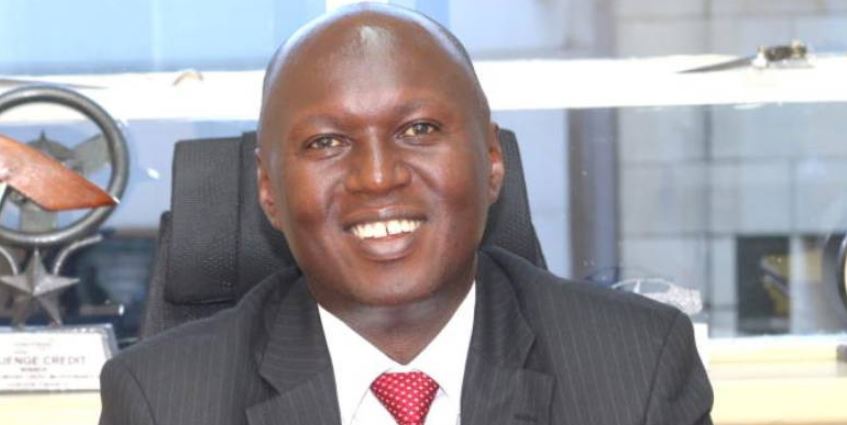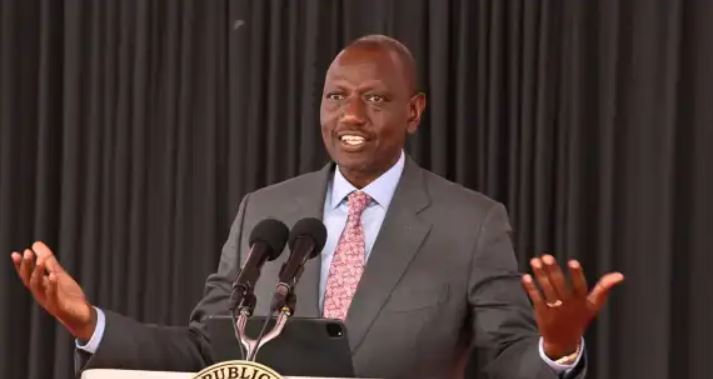 Peter Macharia Kamau, the founder of Jijenge Credit, boasts more than 25 years of experience in the banking sector. He explains why many educated Kenyans don’t know how to manage their finances.
Peter Macharia Kamau, the founder of Jijenge Credit, boasts more than 25 years of experience in the banking sector. He explains why many educated Kenyans don’t know how to manage their finances.
Why did you leave the banking sector which is considered lucrative?
My motivating factor was to provide this service to Kenyans and ensure quality, prompt and efficient service. When I was in the bank, I could see people apply for loans and they could take forever to be approved. That is why I took an early retirement package and established Jijenge Credit. My aim was to reduce the approval time to a short time when we receive all the requirements from the clients.
Some Kenyans are uneasy about repaying the loans. Why?
People who borrow purely for business purposes or investments don’t feel that way but when you borrow for consumption, luxury, or any other type that is beneficial, it will be painful. Some customers get agitated because when given Sh1 million and they don’t put it to proper use, they feel the heat.
Is it true that Kenyans are afraid of borrowing loans?
The biggest challenge for the majority of Kenyans is financial literacy. Very few people have the courage to go to the bank, borrow, manage debt, apply for a loan, and even manage a business.
With your experience, how do you bridge that?
All the customers who borrow from us are trained in financial and business consultancy for free. That is where my experience comes in.
Is it easy to trust all the customers who come in for loans?
Nowadays, what is needed is to do a background check of all the details that are tabled so that we can ascertain if everything is genuine. Once that is done and certified, it makes it easy to build trust and even not ask for backers.
The headache of digital lenders?
Sometimes, the Central Bank cancels all the licenses of all the digital lenders. They also cluster any person who was using a money transfer service to receive or send money as a digital lender.
That is why we were asked to re-apply afresh for the digital lending license and we are among the few to get it. That was one way of locking out those who don’t give dignity to borrowers. We were taken up through some training so as to know how to handle customers not shaming them in any way whenever terms change along the way.
Some credit companies are harsh to those who delay payback or defaulters. What is the best way to handle such cases?
There are several ways we handle that. The best way to do it is to inquire from customers if they have a genuine reason to delay like hospitalization or those that supply the county governments. In such cases, it is not fair to charge any additional cost. In some cases, proof of payment is required so as to make the case reasonable.
There are those who go underground after borrowing a loan.
For those who disappear, they are dealt with by a professional debt collection unit which follows up with them to find out what happened and if they need any assistance. If the matter becomes complicated, it is forwarded to auctioneers who are court officers and are legally licensed to do that.
What is the thin line that separates credit companies and shylocks?
We are better trained; I have a background in banking so whatever practices that are applied in the banks are applied here in terms of professionalism. For instance, our staff are usually trained on customer management, debt management, debt collection, and third-party service providers so as to ensure that all our staff are well trained, knowledgeable, and confident to engage customers. The other thing that separates us from shylocks is that their interest rates are usually higher, they are not licensed by CBK and they don’t have structures.
Do you face challenges like any other business?
Sometimes, we encounter customers who are learned but don’t know how to navigate the finance world. That is why I have always advocated for financial training right from Grade One to university.
How do you tell someone is learned but poor in financial management?
Sometimes, we find doctors or engineers who want to venture into business but they don’t know how to do it. A good case is that of a doctor who wanted to establish a medical equipment business. He thought Gikomba was the best location but in the real sense, his business was supposed to be located around or near a major hospital so as to get the target market. When we encounter such people, we support them in such research and offer them training.
Is there any other way that such people can be assisted?
I think the Ministry of Trade should come up with business incubation structures such that any startups have a mentor and access to research or business models that have been tested elsewhere so that it is easy for people to get direction.








